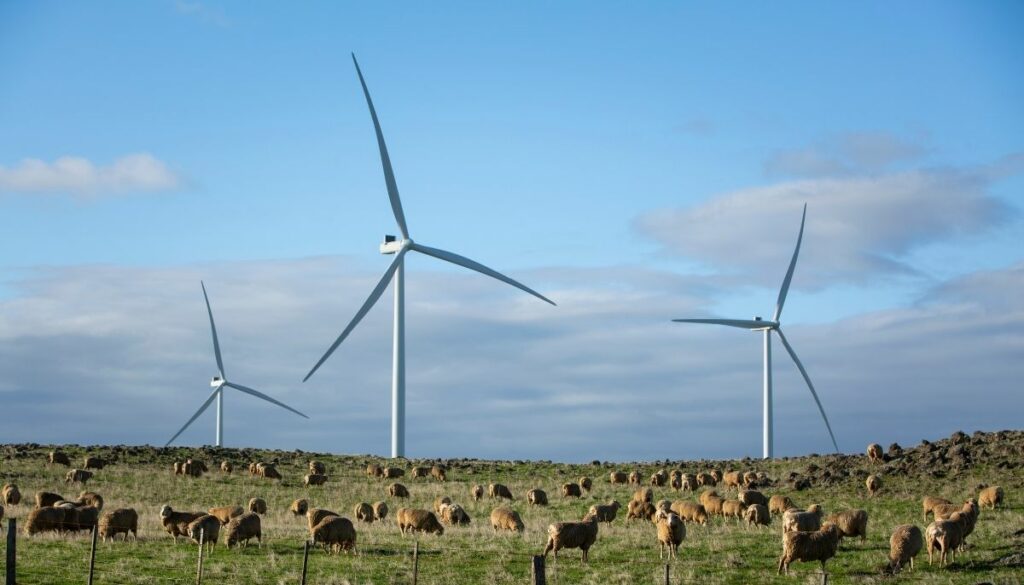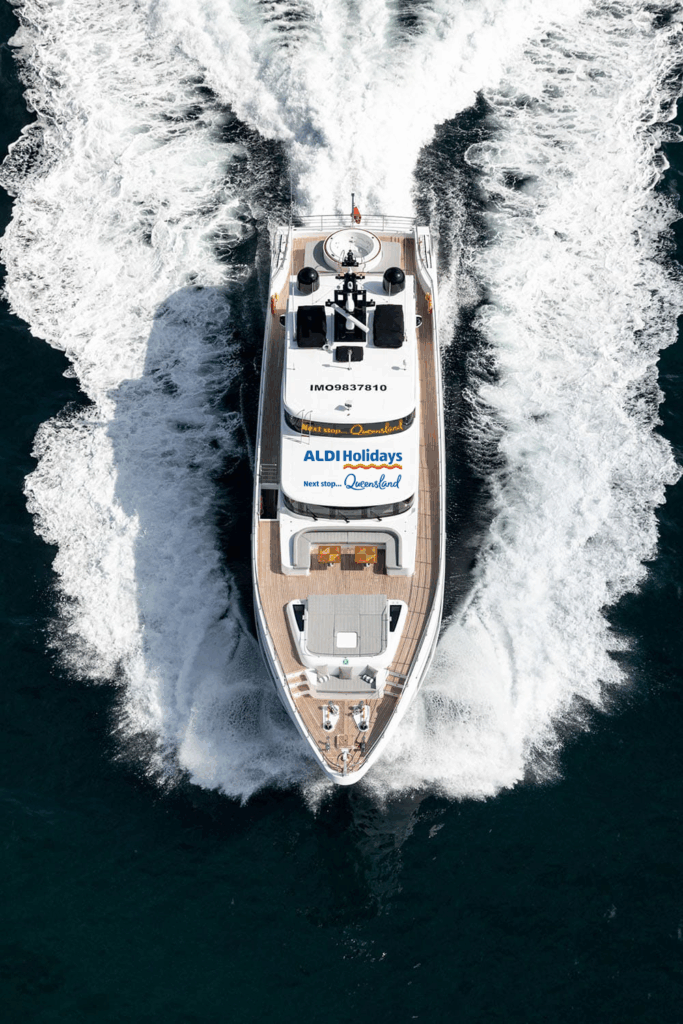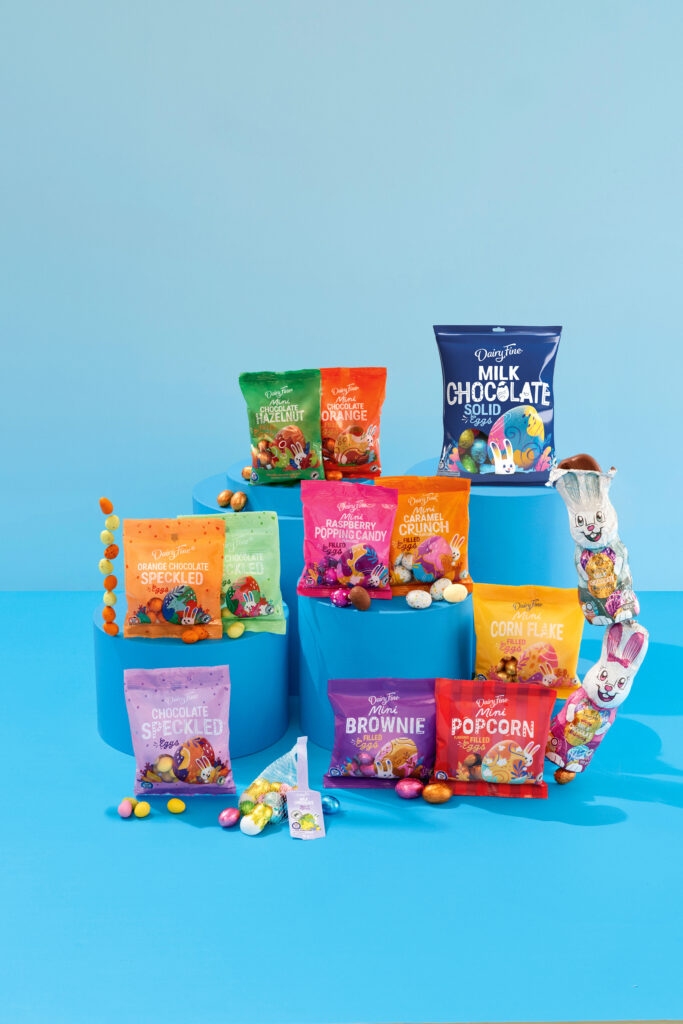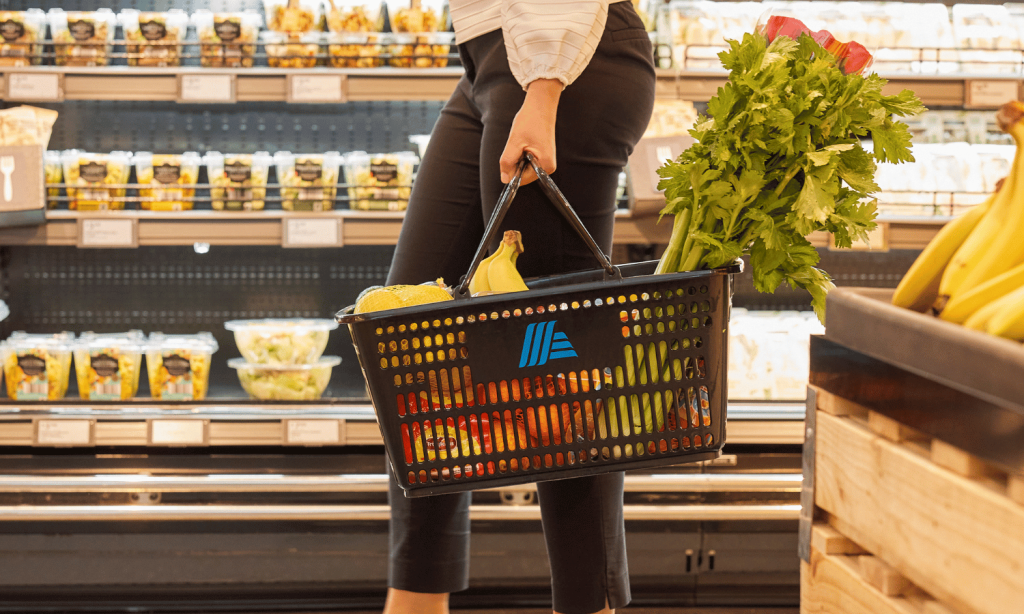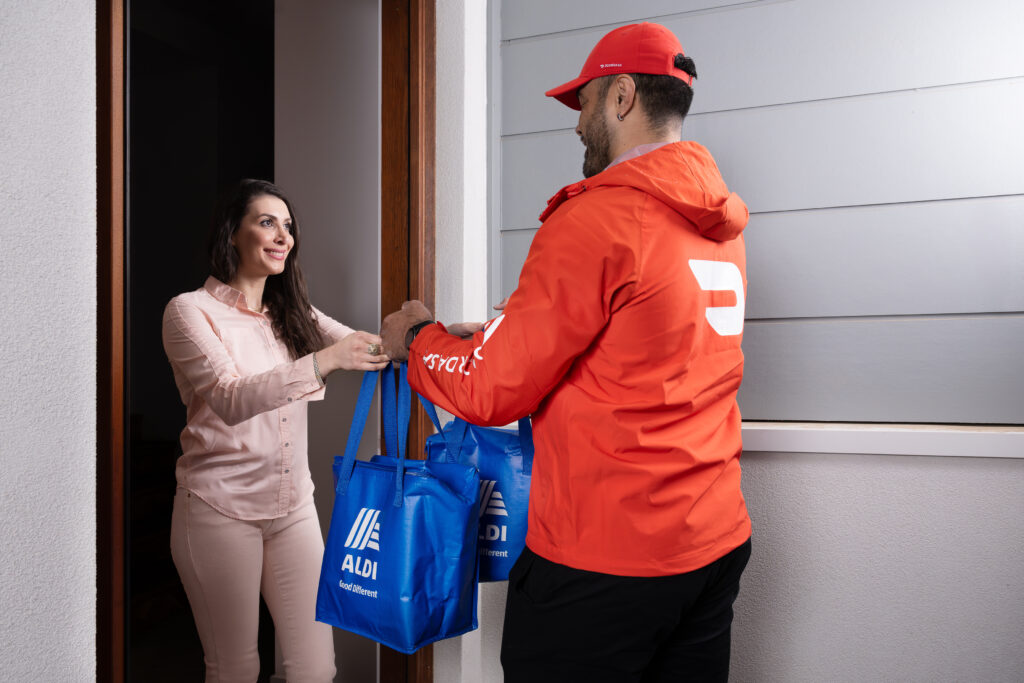ALDI Australia has today announced it has achieved its commitment to power its operations with 100% renewable electricity six months ahead of schedule. This milestone establishes ALDI as the first supermarket in Australia to have all offices, stores and warehouses powered using only renewable electricity sources, and results in a reduction of the company’s carbon dioxide (CO2) emissions by 85%[i].
The transition was achieved using a three-pronged approach comprising of on-site generation via its extensive network of solar panels across stores and Distribution Centres, offsite generation through Power Purchase Agreements with two wind farms, and the acquisition of market renewable energy certificates. By achieving its 100% renewable electricity commitment, the supermarket will annually prevent over 274,000 tonnes of carbon dioxide emissions from entering the atmosphere[ii] which is the equivalent of powering 59,677 Australian homes[iii] or taking 80,588 cars[iv] off the road for one year.
“As the 67th biggest user of electricity in Australia[v] we recognise the significant role we have to reduce our impact on the environment and contribute to a more sustainable future. We have always been a business that prioritises doing the right thing over talking about it. We hope that other businesses across the country are encouraged by what we have been able to achieve and accelerate their own plans around renewable energy,” said Tom Daunt, CEO, ALDI Australia.
“Our customers care about ensuring they purchase with purpose and every time someone walks through our doors they can feel confident their weekly shop isn’t costing the earth. We’re already known for our high quality products at incredibly low prices and as a responsible Australian business, we’re thrilled to be maintaining this great value without compromising the environment.”
ALDI is already generating energy from its wind-farm investments with ten-year Power Purchase Agreements with Tilt Renewables’ Dundonnell Wind Farm, based in western Victoria, and RATCH-Australia’s newest wind farm – Collector Wind Farm located in the Southern Tablelands of New South Wales.
“Tilt Renewables’ partnership with ALDI will be a long-term journey supplying clean renewable energy to their stores from our Dundonnell Wind Farm. Projects like Dundonnell support local jobs as well as Australia’s transition to a lower-emissions future, and we are pleased that ALDI are leading the way in procuring renewable energy and supporting this future,” said Deion Campbell, CEO, Tilt Renewables.
“It has been so encouraging for the RATCH-Australia development team to see a well-known household name like ALDI embrace clean energy. Servicing ALDI’s energy needs currently makes for almost 20% of our Collector Wind Farm’s generation. I hope that many more Australian companies follow ALDI’s lead and tap into this abundant resource,” said Mr Polagorn Kheosiplard, Managing Director, RATCH-Australia.
To generate clean energy onsite, the supermarket continues to install solar panels across its network of freestanding stores. Since commencing its solar installation program in 2015, ALDI will have installed more than 104,000 panels across 274 stores and six Distribution Centres by the end of the year. ALDI’s industry partner Epho, who was recently acquired by AGL, has made up the lion’s share of its extensive solar rollout, having contributed 24.5 Megawatts of power to the supermarket’s total electricity requirements. The benefits of the partnership with Epho extends beyond generating clean electricity, having enabled 150 Epho employees and contractors across the country to remain in their jobs during the height of the COVID-19 pandemic last year.
“Supporting ALDI with their renewables ambition makes the Epho team immensely proud. Last year, at the peak of the program, we delivered 100 solar systems on ALDI stores in 100 business days. This kind of speed is only possible because ALDI and Epho have built a strong partnership over the years,” said Dr Oliver Hartley, Managing Director, Epho.
ALDI has also taken steps to reduce its total electricity usage implementing energy efficiency measures like LED lights reducing total lighting energy consumption by over 50%, as well as trialling natural refrigerant technology.
The supermarket’s 100% renewable electricity achievement is just one of several sustainability initiatives across the business and its supply chain. By 2025, ALDI aims to send zero waste to landfill which includes a goal to achieve zero food waste sent to landfill by 2023. The program will see ALDI expand segregated waste collection at stores and identify closed loop recycling opportunities. It also aims to reduce at least a quarter of all plastics and packaging from its own brand products, as well as remove certain single-use and problematic plastics from its range.
[i] National Greenhouse and Energy Report 2019-2020: http://www.cleanenergyregulator.gov.au/NGER/National%20greenhouse%20and%20energy%20reporting%20data/Corporate%20emissions%20and%20energy%20data
[ii] National Greenhouse and Energy Report 2019-2020: http://www.cleanenergyregulator.gov.au/NGER/National%20greenhouse%20and%20energy%20reporting%20data/Corporate%20emissions%20and%20energy%20data
[iii]Australian Energy Regulator – Annual retail markets report 2019-20. Page 116, Table A2.1 : Annual electricity usage levels. 2019-20 annual average kWh: 5,490
[iv] National Transport Commission (based on avg. emissions from a car: 169.8gm/km, annual km: 20,000 = Annual emissions from a car: 169.8*20000/1000000 = 3.4t
[v] National Greenhouse and Energy Report 2019-2020: http://www.cleanenergyregulator.gov.au/NGER/National%20greenhouse%20and%20energy%20reporting%20data/Corporate%20emissions%20and%20energy%20data

